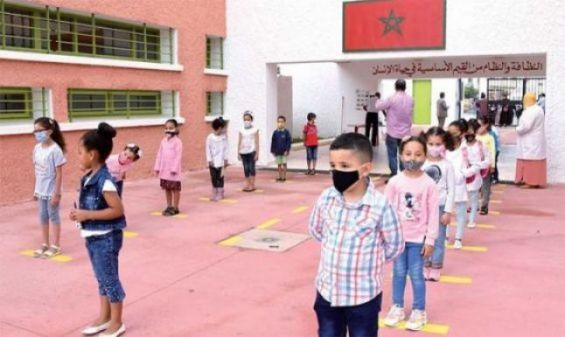«Building a stronger Human Capital could accelerate Morocco’s economic growth, job creation trajectory and competitiveness gains», the World Bank said Tuesday in a new article on the educational system during the Covid-19 crisis.
In its article entitled «Morocco : For an efficient education system at the end of the Covid-19», the institution recalls that the latest estimates of the human capital index show an average increase of 5% in performance between 2010 and 2020 globally. Data from 2010 show an even more significant increase of 6% for Morocco, driven mostly by «improvements in education», it reported.
The institution evokes an «encouraging progress», even while there would remain major challenges in terms of the quality of education, equity, and overall management of the sector.
A pandemic that undermines progress in education
Indeed, «even prior to the crisis, Morocco was struggling to stay on track to meet the 2030 targets for inclusive, equitable, quality education and lifelong learning», the same source added.
«In 2019, 66% of 10-year-olds in Morocco were not able to read and comprehend a simple text, a score 2.5 percentage points lower than the Middle East & North Africa (MENA) regional average and 10.7 percentage points lower than the lower-middle-income country average».
The document also recalls that in 2018, the years of schooling of Moroccan students adjusted according to prior learning were estimated at 6.2 years. An effective duration of schooling in Morocco which was on average «4.4 years less than the number of actual years», referring to figures which «reflects the learning crisis that Morocco is facing, like other countries, and the urgency to improve the performance of the education system to ensure that it provides all with a basic set of skills that are necessary to contribute as citizens and individuals to the Moroccan society and economy».
As a result, the World Bank considers that the pandemic is «threatening to further undermine Morocco’s education outcomes. Lockdown measures, including school closures, have led to the loss of at least three months of learning for an estimated 900,000 preschoolers, eight million primary (elementary) and secondary (high) schoolers, and one million students in tertiary education».
Investing in human capital and working towards a resilient system
Despite the measures implemented by authorities, «World Bank simulations estimate the learning crisis may prove harmful in a wider sense as well, by eroding growth and poverty reduction in Morocco».
The institution recommends that Morocco «safeguards education spending to limit the intergenerational transmission of poverty».
To do this, the World Bank suggests that the country continues «to focus on its 2015–2030 objectives by using lessons from the COVID crisis to accelerate education reforms».
As for face-to-face learning, «it is important to keep schools open, where possible and under strict social distancing rules, in order to give students the best chance for learning and to bridge gaps».
It also recommends «preventing dropping out of school» and «fighting against (its) risks» through «awareness campaigns» and even «financial and non-financial incentives» and catch up classes.
While advocating for «teachers professional development» and «stronger public-private partnerships (PPP) to improve access to quality education for all», the World Bank also proposes to «adopt new approaches to accelerate reforms through well-targeted interventions», favoring children at risk.




 chargement...
chargement...











